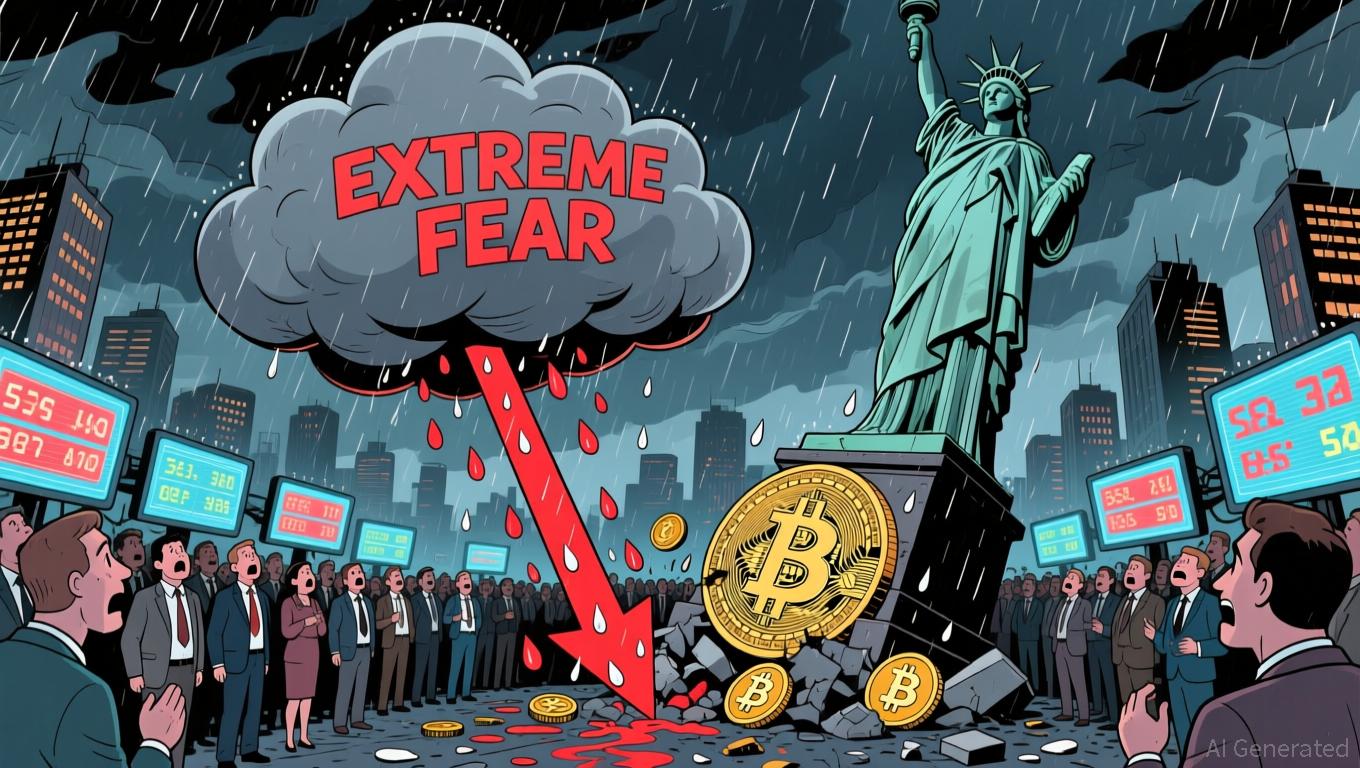Hyperdrive’s thBILL: A Reliable Haven Amid DeFi’s Turbulent Seas
- Hyperdrive confirms thBILL asset's security after investigation, despite $773K drained from two treasury wallets via an attack. - Market stability persists with no regulatory action, as DeFi protocols like Hyperdrive pause markets and inject liquidity to mitigate risks. - DeFi sector faces heightened security concerns after Hyperdrive's breach and HyperVault's $3.6M exit scam, testing ecosystem resilience. - Proactive measures and six audits have prevented systemic flaws, but rapid incidents shifted inve

Hyperdrive, a decentralized finance (DeFi) platform, has stated that its thBILL asset is free from vulnerabilities after a thorough review. Project leaders clarified that the investigation is focused on two particular wallet positions in the Hyperdrive Treasury Market, both of which used thBILL as collateral and were reportedly compromised in a recent attack. Despite this incident, thBILL itself remains unaffected, and the ongoing inquiry has not caused any market instability or prompted regulatory action No thBILL Vulnerability Found, Hyperdrive Investigation Continues [ 1 ].
The breach, which was initially revealed on September 27, 2025, involved exploited positions that resulted in a loss of about $773,000. The attackers transferred 288.37
Market conditions have remained steady, with leading cryptocurrencies such as ETH, BTC, and other altcoins continuing their usual trends. Trading and fundraising within DeFi have not shown any abnormal patterns related to the thBILL event. Past experiences indicate that extended investigations can actually strengthen trust in protocols, as demonstrated by the resolution of the CVE-2025-11048 issue earlier this year No thBILL Vulnerability Found, Hyperdrive Investigation Continues [ 1 ]. Hyperdrive’s response—suspending markets and providing additional liquidity—reflects tactics used in earlier incidents, such as the 2024 Hyperdrive report, which detailed a flaw in liquidity provider (LP) accounting Hyperdrive Incident Report [ 4 ].
The wider DeFi landscape is under increasing security scrutiny, with Hyperdrive being the second protocol in two days to report a breach. HyperVault, another yield-focused protocol, recently experienced a $3.6 million exit scam through Tornado Cash, raising questions about the resilience of the Hyperliquid ecosystem. Observers have long raised concerns over Hyperliquid’s validator setup, which relies on just four nodes, potentially making it more vulnerable to coordinated attacks Security Crisis Heading for Hyperliquid? Flagshop Protocol Hacked [ 3 ]. Nevertheless, Hyperdrive’s comprehensive security efforts—including six audits, formal verification, and fuzz testing—have not uncovered any systemic risks.
The final outcome will depend on the depth of the investigation and how the community responds. Current evidence points to continued stability without regulatory disruption, but the DeFi sector remains vigilant. Analysts highlight that Hyperdrive’s swift actions—such as adding liquidity to facilitate safe LP withdrawals—have helped prevent further losses. However, the recent string of incidents has shifted investor mood from confidence to caution, with over $200 million in
Hyperdrive’s management has not reached out to prominent industry figures or influencers to publicly address the situation, which is a notable shift from standard DeFi crisis communication strategies. This silence stands in contrast to previous events, such as the 2024 Lazarus Group test transactions on Hyperliquid that led to a 20% drop in the HYPE token’s value Security Crisis Heading for Hyperliquid? Flagshop Protocol Hacked [ 3 ]. The current priority is resolving the thBILL-related incident, with no immediate plans for a native token launch or changes to governance.
Disclaimer: The content of this article solely reflects the author's opinion and does not represent the platform in any capacity. This article is not intended to serve as a reference for making investment decisions.
You may also like
Japan Unveils $110B Stimulus: Major Shift from Fiscal Restraint to Economic Expansion and National Security
- Japan's PM Sanae Takaichi unveils $110B stimulus to combat stagnation and bolster security amid China tensions. - Plan includes tax cuts, utility subsidies, defense spending, and strategic investments in AI, semiconductors , and shipbuilding. - Funded by 14-trillion-yen supplementary budget, with potential expansion to 20-trillion-yen ($133B) as per analyst estimates. - Shift from austerity reflects Takaichi's hardline security stance and response to China's travel advisory over Taiwan remarks. - Impleme

Bitcoin News Update: Bitcoin Reaches $96K Amidst Institutional Interest and Challenges from Regulations and Price Barriers
- Bitcoin surged past $96,000 as buyer accumulation and seller exhaustion drove short-term recovery, though $106,000–$118,000 remains a key resistance zone. - Harvard’s $443M investment in BlackRock’s IBIT highlights growing institutional adoption, contrasting traditional preferences for private equity. - Bitcoin Depot reported 20% Q3 revenue growth but faces regulatory challenges, expanding internationally while projecting Q4 declines due to compliance costs. - MicroStrategy’s Michael Saylor denied Bitcoi

Bitcoin News Today: Bitcoin Faces $62K Drop Threat Amid Fed's Data Silence Predicament
- Bitcoin faces $62K crash risk amid Fed uncertainty caused by U.S. government shutdown's "data blackout" disrupting inflation/labor data. - Post-Nov 13 reopening saw BTC rebound above $102K, but markets remain fragile with 20% decline from October peak despite $140B ETF growth. - Fed rate cut odds dropped to 52% for December, creating volatility as institutions like Harvard Endowment invest $443M in Bitcoin ETFs. - U.S. miners struggle with 37.75% global hashrate share amid lack of federal incentives, con

Bitcoin Updates Now: Crypto Faces a Standstill as Market Anxiety Meets Harvard’s Confident Bitcoin Investment
- Alternative Data's Fear & Greed Index hit record low 10 on Nov 16, signaling extreme crypto market fear and frozen investor sentiment. - Bitcoin fell 5% to $96,000 while CD20 lost 5.8% as profit-taking, liquidations, and liquidity declines accelerated selloffs. - Rising U.S. Treasury yields and central bank uncertainty worsened losses, with Nansen noting "perfect storm" of macro risks and institutional outflows. - Harvard's $443M IBIT ETF investment contrasts current bearishness, highlighting diverging i
